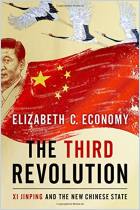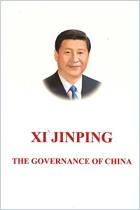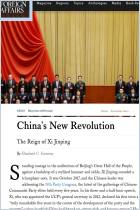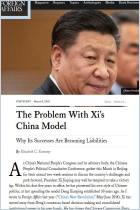Únase a getAbstract para acceder al resumen.

Únase a getAbstract para acceder al resumen.
Steve Tsang and Olivia Cheung
The Political Thought of Xi Jinping
Oxford UP, 2024
¿De qué se trata?
China’s premier is an old-school strongman, according to these China scholars.
Recommendation
No political figure wields more power in China than Xi Jinping, yet he remains something of an enigma to most Westerners. So readers will find the insights offered in this study of “Xi Thought” by China scholars Steve Tsang and Olivia Cheung most welcome. In the authors’ telling, Xi’s political philosophy is everything the West repudiates: He’s an authoritarian and a Marxist-Leninist who demands unblinking fealty from every one of China’s 1.4 billion residents. Tsang and Cheung are matter-of-fact in reciting the principles of Xi Thought, and they’re clear-eyed in pointing out its purpose and shortcomings.
Summary
About the Authors
Steve Tsang is the director of the China Institute at SOAS University of London. He is also a fellow of the Academy of Social Sciences and an emeritus fellow of St. Antony’s College at Oxford. Olivia Cheung is a research fellow at the China Institute at SOAS University of London.


















Comment on this summary